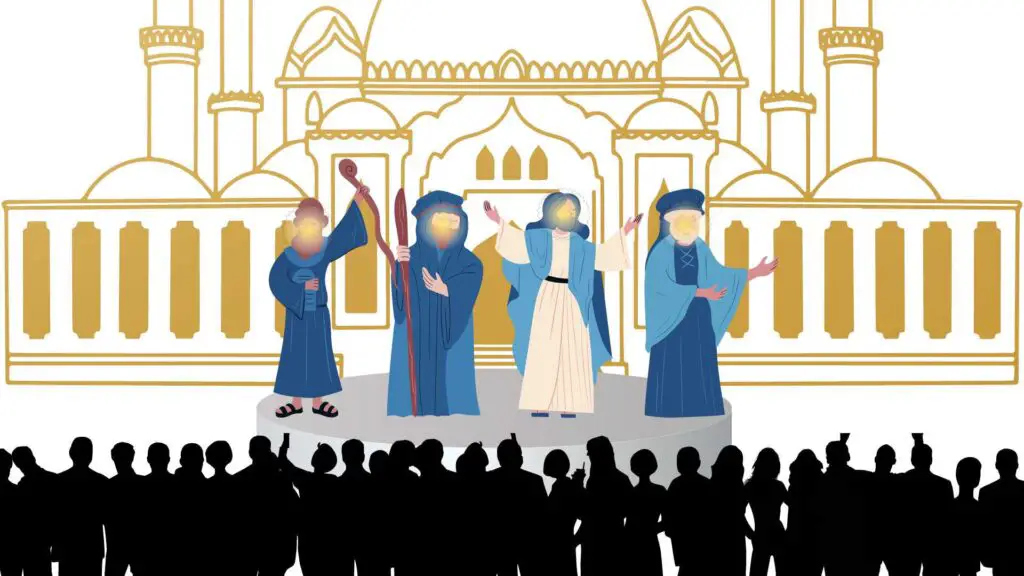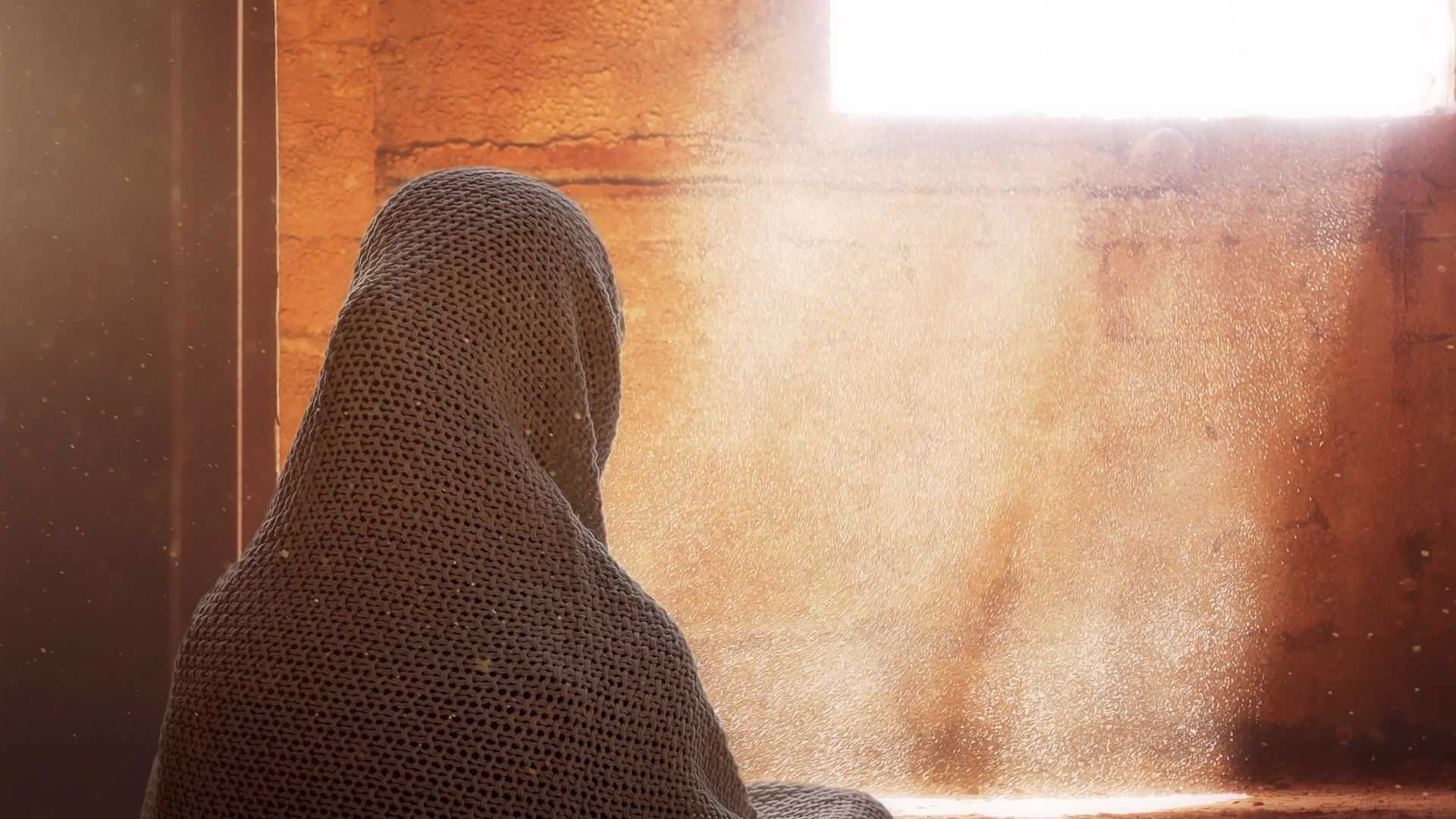Why were the Prophets of Islam, Christianity, and Judaism were all men? why there is no female prophets in Islam and other Abrahamic religions? Why were they all male?
All of Allah’s messengers were selected by Him from among men. No female prophets or messengers were dispatched by him. Due to requirements imposed by the nature of their work, the Messengers could only be men. Read the comprehensive response to know why there is no female prophets in Islam.
Believing in Allah’s Wisdom
The Muslim has no qualms about acknowledging Allah’s infinite wisdom in whatever He accomplishes, may He be honored and exalted. Al-Hakeem (the Most Wise) is one of His names, while Hikmah is one of His qualities (wisdom).
Also Read: 99 Names of Allah (Al Asma Ul Husna)
One of the characteristics of the messengers, according to Allah, may He be praised, is masculinity. There is an agreement, according to some academics, on this issue. And behind that is the most incredible wisdom.
Why there is no female prophets in Islam
Shaykh ‘Umar al-Ashqar (may Allah preserve him) said:
“Another aspect of the perfection that Allah granted is that He chose all the messengers whom He sent from among men. He did not send any messenger from among women. This exclusivity is indicated by the verse in which Allah says (interpretation of the meaning): “And We sent not before you (O Muhammad) but men to whom We inspired.” [al-Anbiya 21:7]

Due to requirements imposed by the nature of their work, the messengers could only be men. For instance:
1. The job of a messenger entails a variety of responsibilities, including speaking to both men and women, meeting people in public and privately, traveling across the country, confronting liars and providing evidence against them and engaging in debate with them, organizing and commanding armies, and enduring the hardships of battle. All of that is appropriate for men and not so suitable for women.
2. The messenger’s duty requires that he be in control of people who obey him, thus he gives orders and warnings to his adherents and administers justice among them. People wouldn’t follow and obey a woman if she were given such responsibilities since she wouldn’t be able to complete them effectively.
3. In addition to the care that the kid needs, women must deal with conditions that prevent them from performing various duties, including menstruation, pregnancy, childbirth, and nifas (bleeding after childbirth), which are followed by psychological tensions and aches. She is unable to do her duties as a messenger because of all of it. (From ar-Rusul wal-Risalat, pp. 84-85)
Were there any female prophets in Islam?
Some scholars, including Abu’l-Hasan al-Ash’ari, al-Qurtubi, and Ibn Hazm, believed that there had been some female prophets in the history of prophethood. Maryam bint ‘Imran (PBUH) is among them. The verses that claim that Allah, may He be exalted, sent revelation to Maryam (peace be upon her) and the mother of Musa a.s., as well as those that claim that Maryam was selected by Allah, may He be exalted, above all other women in the world, serve as their proof.
It doesn’t appear like what they claimed was accurate. Denying the notion that women served as prophets, Shaykh ‘Umar al-Ashqar (may Allah preserve him) said:
“What they say cannot be taken as proof of the prophethood of women. Their view may be refuted from several angles:
1. We disagree with their assertion that the prophet is not required to preach, teach, or interact with the populace. In our opinion, there is no distinction between a prophet and a messenger in this way; the only distinction is that a prophet is sent with the laws of the messenger who came before him.
If this is the situation, then the same restrictions that prevent sending a woman messenger also prohibit sending a woman prophet. There are a variety of reasons why women are unable to portray prophets.
2. These women, the mother of Musa (A.S.), Asiyah, and Maryam (peace be upon her), received a revelation from Allah in the shape of dreams. We are aware that people other than prophets may also experience dreams as a sort of revelation.
3. We disagree with their assertion that every person to whom the Angels speak is a prophet. According to a hadith, Allah sent an angel to a man who was visiting one of his brothers in faith in a different town. He asked him why he was visiting him, and when he responded he loved him for the sake of Allah, he (the angel) told him that Allah had sent him to tell him that He loved him.
And everyone is familiar with the tale of the blind man, the leper, and the bald man. The Sahabah (the Companions of the Prophet) saw and heard Jibril (Gabriel) questioning the Messenger (blessings and peace of Allah be upon him) in order to teach them about their religion.
4. They are unable to use scriptures that claim Allah chose Maryam as evidence because Allah explicitly indicates that He has chosen persons other than the prophets:
“Then We gave the Book (the Quran) for an inheritance to such of Our slaves whom We chose (the followers of Muhammad). Then of them are some who wrong their own selves, and of them are some who follow a middle course, and of them are some who are, by Allah’s Leave, foremost in good deeds…” [Fatir 35:32]
He preferred the families of Ibrahim (PBUH) and Imran (PBUH) over those of humans and jinn, and there are surely non-prophets in their families:
“Allah chose Adam, Nuh (Noah), the family of Ibrahim (Abraham) and the family of ‘Imran above the ‘Alameen (mankind and jinns) (of their times).” [Al ‘Imran 3:33]
5. The hadith’s use of the word “perfection” as the evidence does not necessarily imply prophethood; rather, it might refer to everything that has been completed to the best of one’s ability or has attained the highest possible level. It refers to females who have acquired perfection in all the female-specific virtues; as a result, this perfection differs from that of the prophets.
6. Khadijah (R.A.) is referred to as one of the ideal ladies in certain hadiths. This demonstrates unequivocally that the perfection here is not the perfection of prophecy.
7. Aside from Maryam (PBUH), the daughter of Imran, it is explicitly mentioned in several hadiths that Hazrat Fatimah (R.A.) would be the leader of the women of the inhabitants of paradise. Hazrat Fatimah (R.A.) was unquestionably not a prophet, which eliminates the prophethood of other women outside Maryam (PBUH), such as the mother of Musa (A.S.), Asiyah. According to this hadith, she is superior to other women, and if Musa (A.S.) mother Asiyah had been a prophet, they would have been superior to Fatimah (R.A.).
8. When characterizing Maryam’s (PBUH) upbringing and attributes, she is referred to as a siddiqah (truthful). Allah, praise be to Him, declares:
“The Messiah (‘Isa (Jesus)), son of Maryam (Mary), was no more than a messenger; many were the messengers that passed away before him. His mother (Maryam (Mary)) was a Siddiqah (i.e. she believed in the words of Allah and His Books). They both used to eat food (as any other human being, while Allah does not eat)…” [al-Maidah 5:75]
There is no mention of any female prophets in the Quran or the sahih hadiths of the Prophet, but if there were a greater description, it would have been made.
Maryam (PBUH) was not the prophet, according to a group of scholars who were quoted by al-Qadi ‘Iyad. Imam al-Haramayn recounted that there was agreement that Maryam (PBUH) was not a prophet, according to An-Nawawi in al-Adhkar. There are no prophets among women or the jinn, according to al-Hasan al-Basri, who was cited as saying in Sharh al-Muhadhdhab and attributed to a group of intellectuals. (From pp. 87–89 of ar-Rusul wa’r-Risalat) (The Messengers and the Messages in the Light of the Quran and Sunnah, by ‘Umar S. al-Ashqar, is available in English.)
The Important Role of Motherhood
Throughout the history of all religions, there have never been any female prophets. However, as they were the prophets’ mothers, women played a crucial role in bringing up the prophets to be morally upright members of society. Mothers were the ones who imparted to them all of the life skills based on the religion of the time. Why didn’t God select women as prophets? God can be questioned on it. We could only comprehend that prophets were given a greater rank as mothers by God. If one examines the stories of the prophets, it is evident that the duties of conveying the message, guiding the followers through difficulties, and addressing other things would have been difficult for women, particularly when they have the obligation of raising children and keeping up the family. It’s fascinating to observe that the prophet Muhammad (sa) received most of his knowledge through his wives, who were the closest observers of his personality and way of life.
Also Read: Why were all the Prophets shepherds?
These were the reasons why there is no female prophets in Islam. Read more Islamic Blogs or Follow us on social media for daily Islamic reminders.






